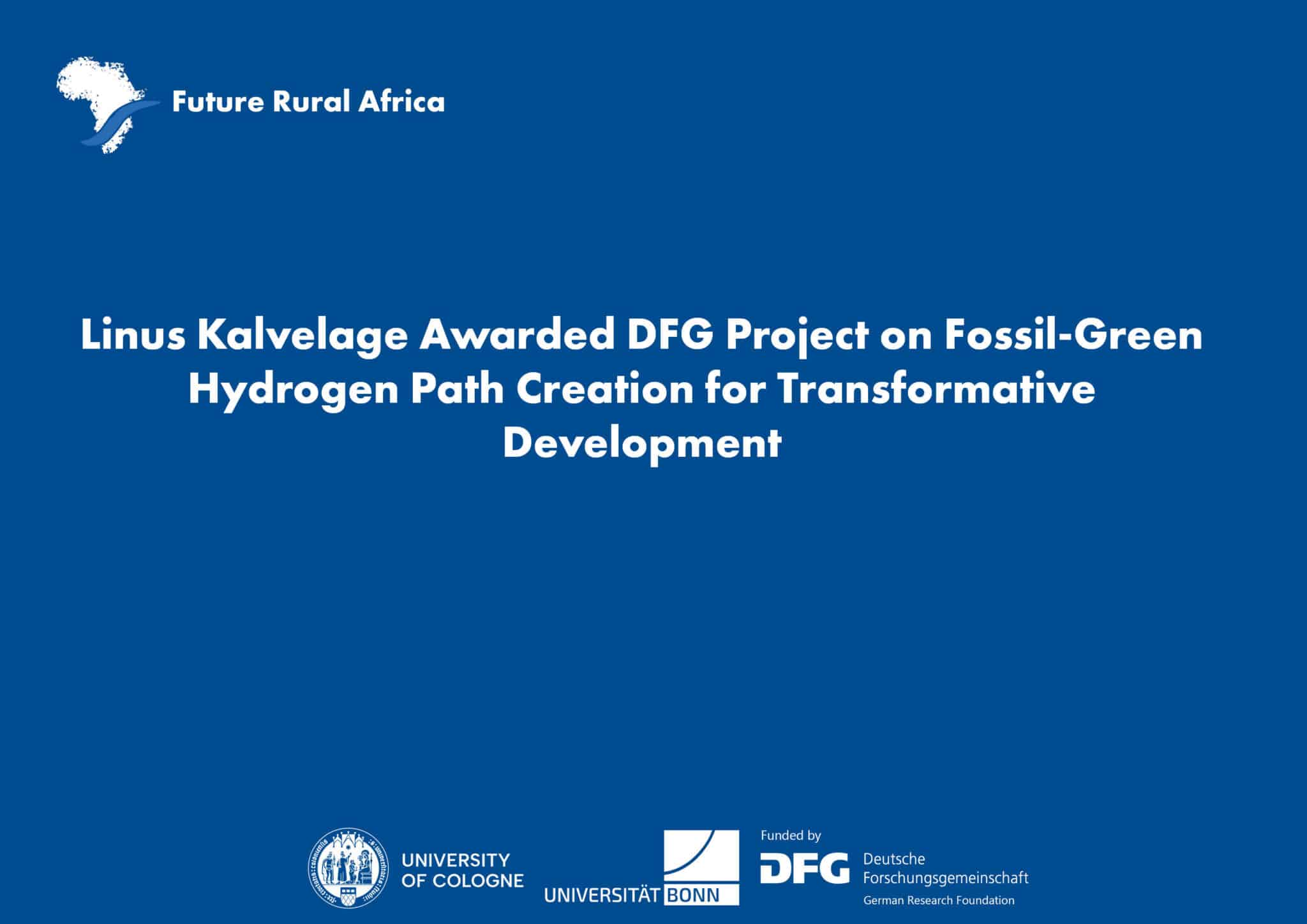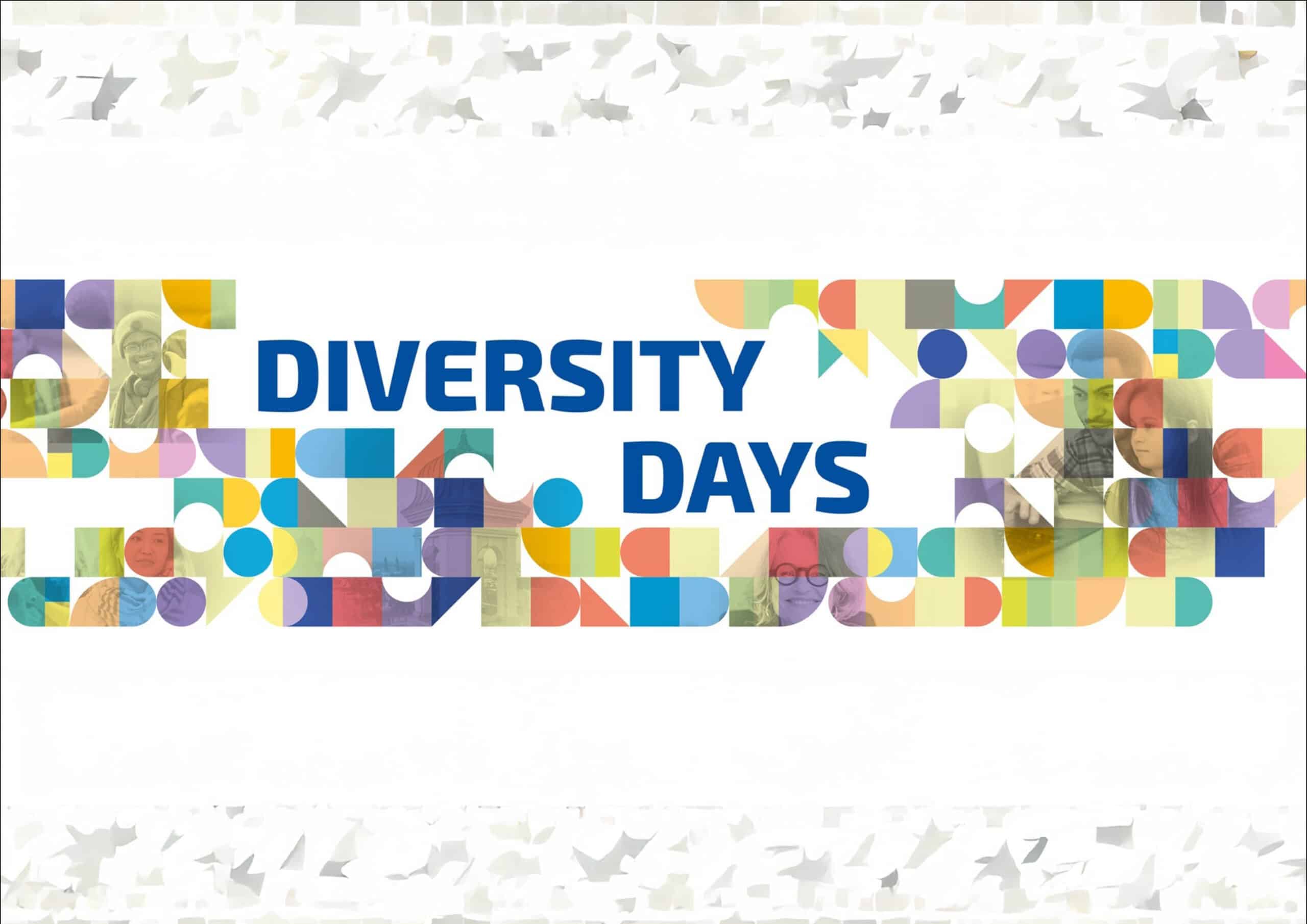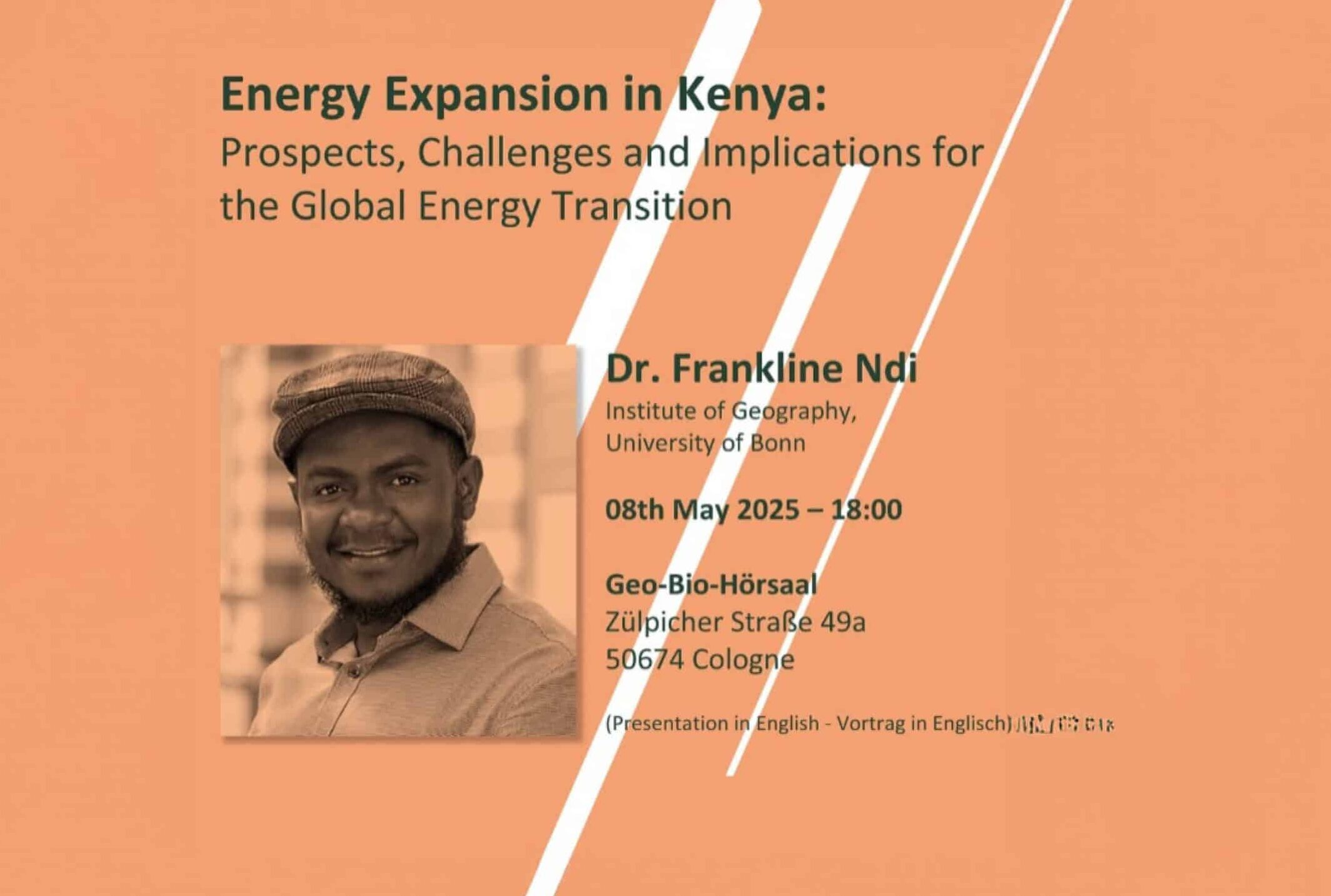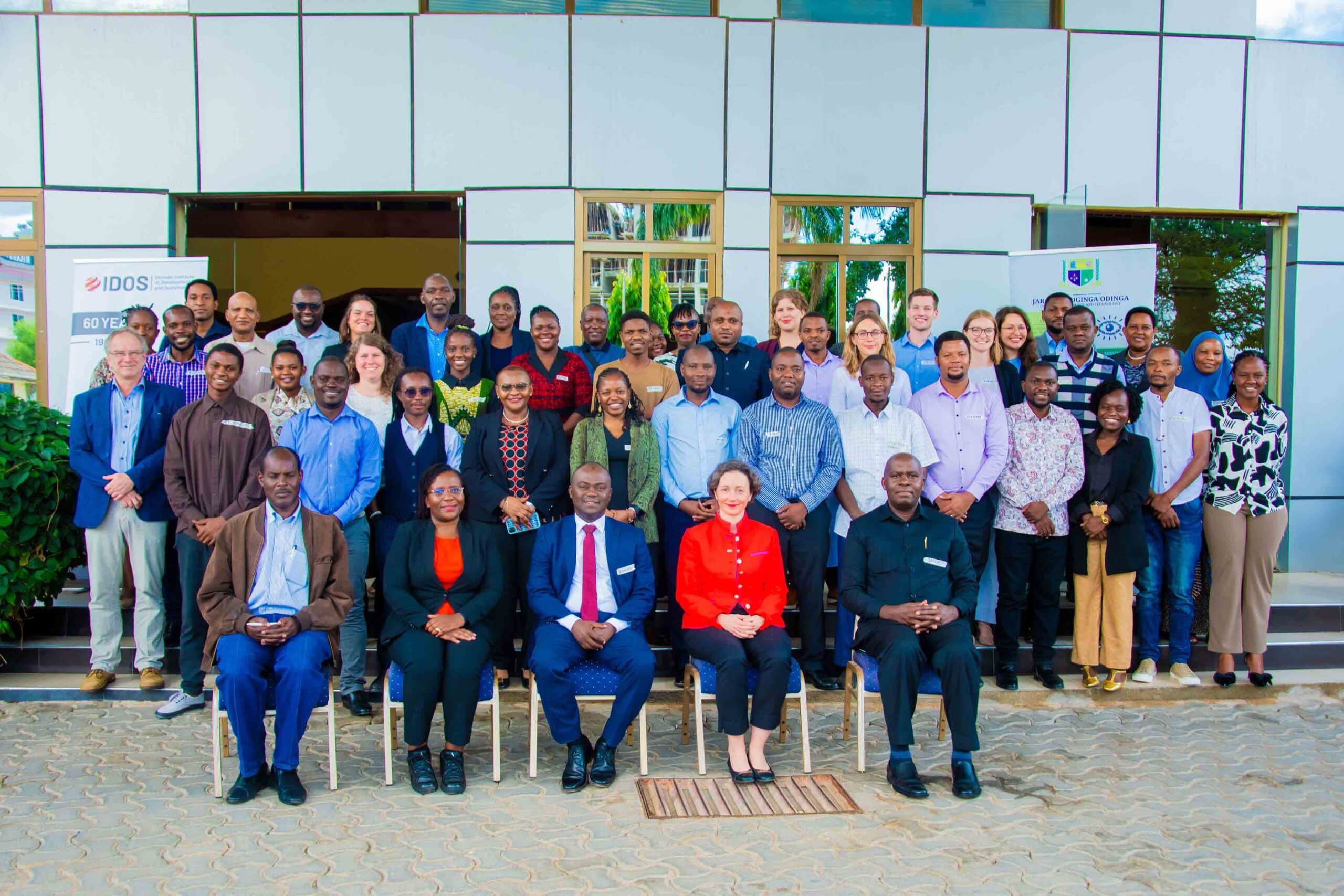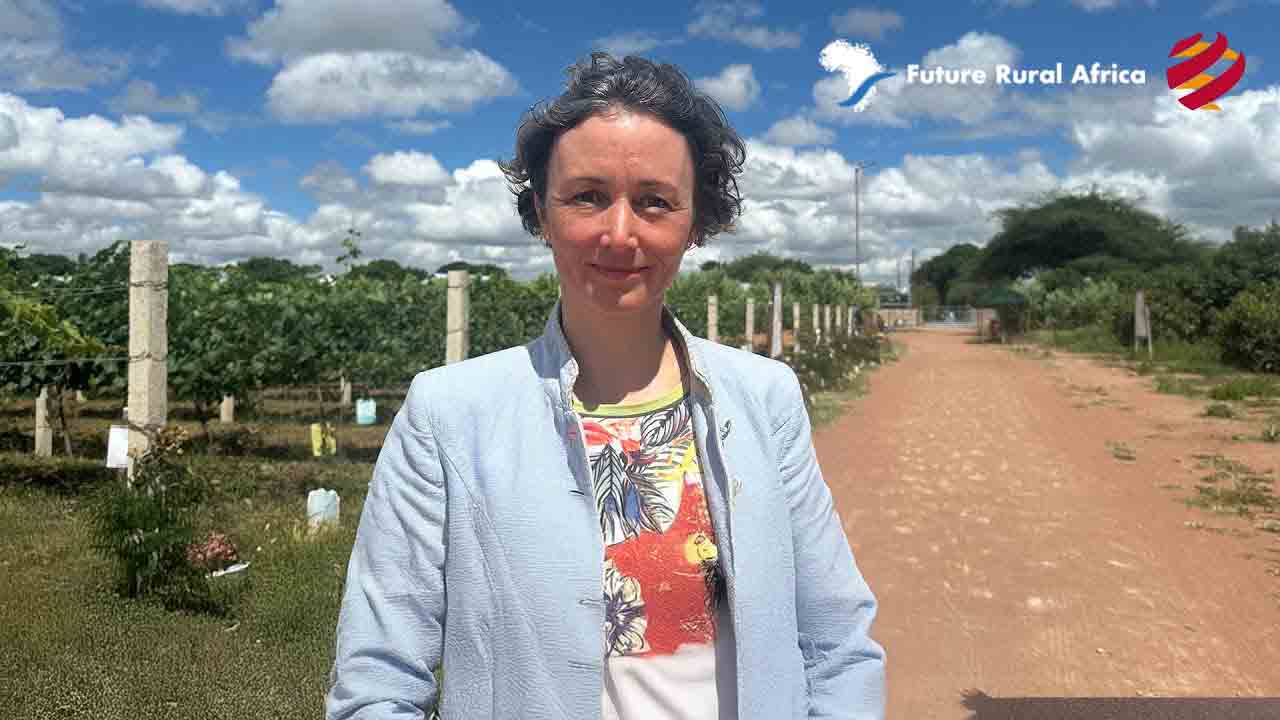Researcher Linus Kalvelage is a geographer at the University of Cologne. He completed his PhD during the first funding phase of the CRC-TRR 228 Future Rural Africa (2018-2022) in Project C01 Future in Chains. Linus recently acquired a Deutsche Forschungsgemeinschaft (DFG) funded research project on “FGHyTransition: Fossil-green hydrogen path creation for transformative development in Namibia and Vietnam” that directly builds on his research in the CRC Future Rural Africa. We met up with Linus to discuss his new project and how it links to the research conducted in the Future Rural Africa Project.
You completed your PhD in our Project C01 Future in Chains during the first funding phase of the Collaborative Research Centre Future Rural Africa and are now an associated member. What did you work on during your time in the project?
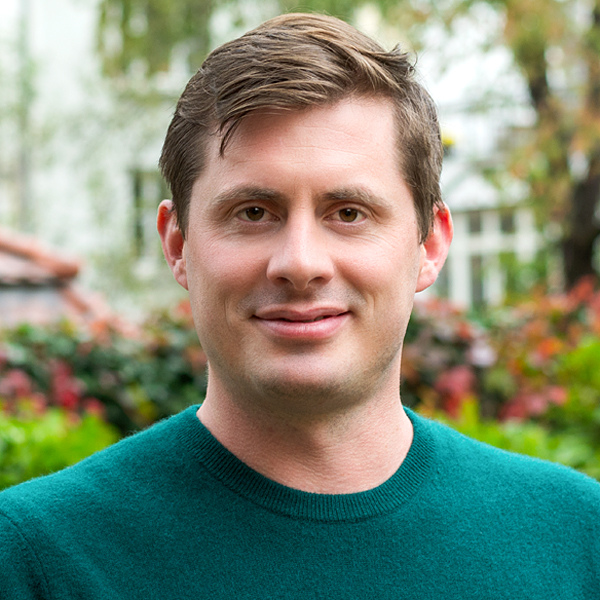
Doing my PhD in the context of such an interdisciplinary research project was an inspiring experience, as it allowed me both to exchange ideas with peers from different disciplinary backgrounds and to seek mentorship from more experienced researchers. The discussions we had during our project meetings allowed me to gain in-depth knowledge of the context in which I was working. During my PhD from 2018 to 2021, I was attached to the work programme of the C01 Future in Chains project. Our common research objective was to understand the multiple socio-economic impacts of growth corridor projects on peripheral regions in Southern Africa. Growth corridors are a spatial development tool that aims to transform not only ‘hard’ infrastructure such as bridges and roads, but also the institutions surrounding these infrastructures, in order to enable rural people to participate in global value chains. Within these broader research objectives, I have focused on the nexus with conservation land use. Throughout southern Africa, conservation is a dominant form of land use that seeks to integrate the need to protect the biosphere with human aspirations for economic growth through tourism development. My PhD research therefore touched on issues of the commodification of nature through integration into tourism value chains, the role of growth corridors for tourism development, and contributed a political economy perspective to conservation by unravelling the global linkages that influence regional development in conservation areas.
Recently, you successfully applied for a DFG funded research project on “FGHyTransition: Fossil-green hydrogen path creation for transformative development in Namibia and Vietnam”. Could you tell us what the new project will be investigating and how that links to your research undertakings in the CRC TRR Future Rural Africa?
The original idea for this project came to me during my long travels in Namibia. It became clear that Namibia was being increasingly targeted by international energy companies, not only in the field of green hydrogen, but also in the oil and gas sector. During an exploratory field phase, facilitated by CRC-TRR 228 funding, I was able to identify relevant research topics, which subsequently led to the project proposal and two publications that shed light on the geopolitical aspect of the energy boom in Namibia. In my view, Namibia is currently at a crossroads, as two industrial pathways are emerging simultaneously – green hydrogen and oil and gas exploitation. However, it is hotly debated whether and under what conditions resource extraction can lead to inclusive growth pathways that benefit local small and medium enterprises. At the same time, we face the global challenge of phasing out fossil fuels while scaling up renewable energy alternatives to combat climate change. Given these complexities, I want to understand how the two industries – green hydrogen on the one hand, and oil and gas on the other – are linked through shared investments, infrastructure, markets, skills and institutions at multiple scales. My argument is that we need to explore these linkages in order to understand how development trajectories will unfold regionally. Even if this does not unfold directly in the core research region of CRC-TRR228, the results will be highly relevant to the research consortium because of the deep economic transformations that are currently taking place as a result of the aspirations connected with the energy sector. A future-making lens is highly relevant to my research topic – I will therefore continue my good collaboration with projects C01 and C02 – Energy Futures.
References
Kalvelage, L., Walker, B. 2024. Strategic coupling beyond borders: Germany’s extraterritorial agency in Namibia’s green hydrogen industry, Journal of Economic Geography, Volume 24, Issue 6, November 2024, Pages 921–941, DOI
Kalvelage, L., Tups, G. 2024. Friendshoring in global production networks: state-orchestrated coupling amid geopolitical uncertainty, ZFW – Advances in Economic Geography, 2024. DOI

